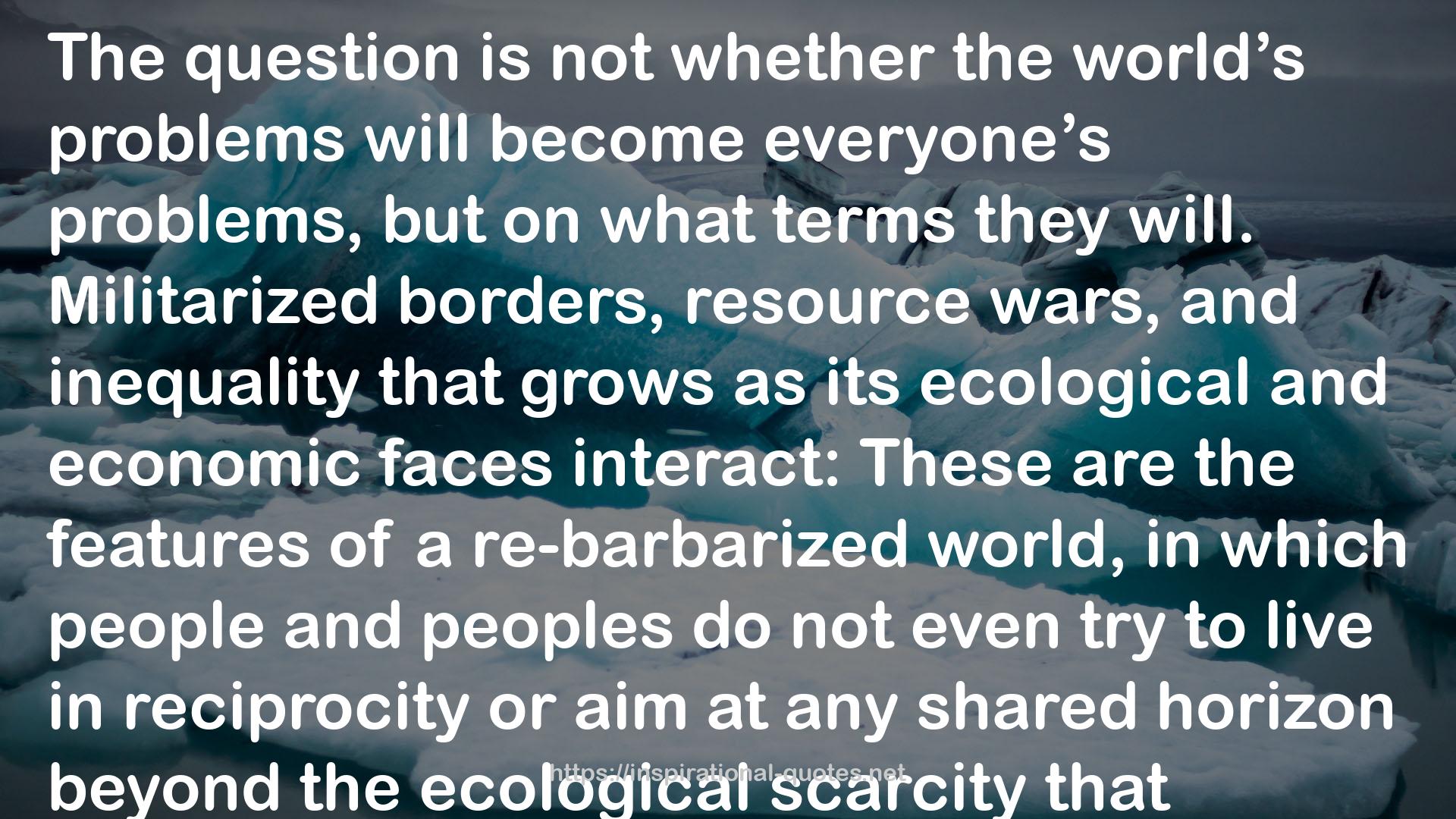" The question is not whether the world’s problems will become everyone’s problems, but on what terms they will. Militarized borders, resource wars, and inequality that grows as its ecological and economic faces interact: These are the features of a re-barbarized world, in which people and peoples do not even try to live in reciprocity or aim at any shared horizon beyond the ecological scarcity that presses down inequitably on everyone. The ways the world’s respectable powers have been pretending to build a global commonwealth, by growth and trade, have brought us here. Although the polite official response to global inequality is still to regret it and seek ways to mitigate it, the rising political tide is a cruder and more candid call to maintain your own relatively and (temporarily) secure place in it against whoever would take it away. There is neither time enough nor world enough—we would need several worlds with comparable resources—to grow and trade our way to a global capitalist version of commonwealth. But the notorious fact that in the long run we are all dead, and so is the world, has become a perverse source of comfort to those who think they can ride out disaster long enough for their own purposes, until their own lights go out. "
― Jedediah Purdy , This Land Is Our Land: The Struggle for a New Commonwealth
